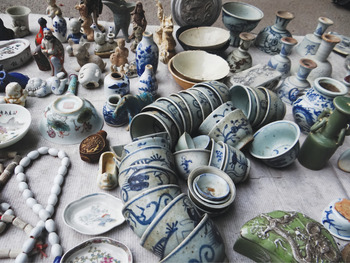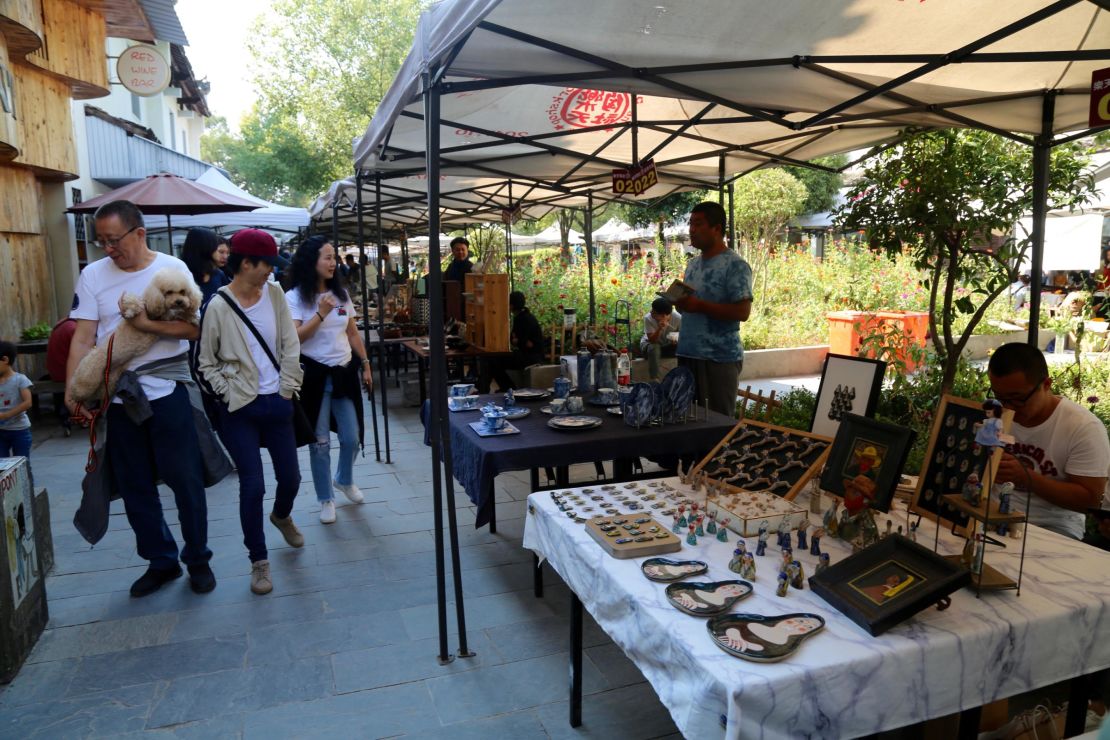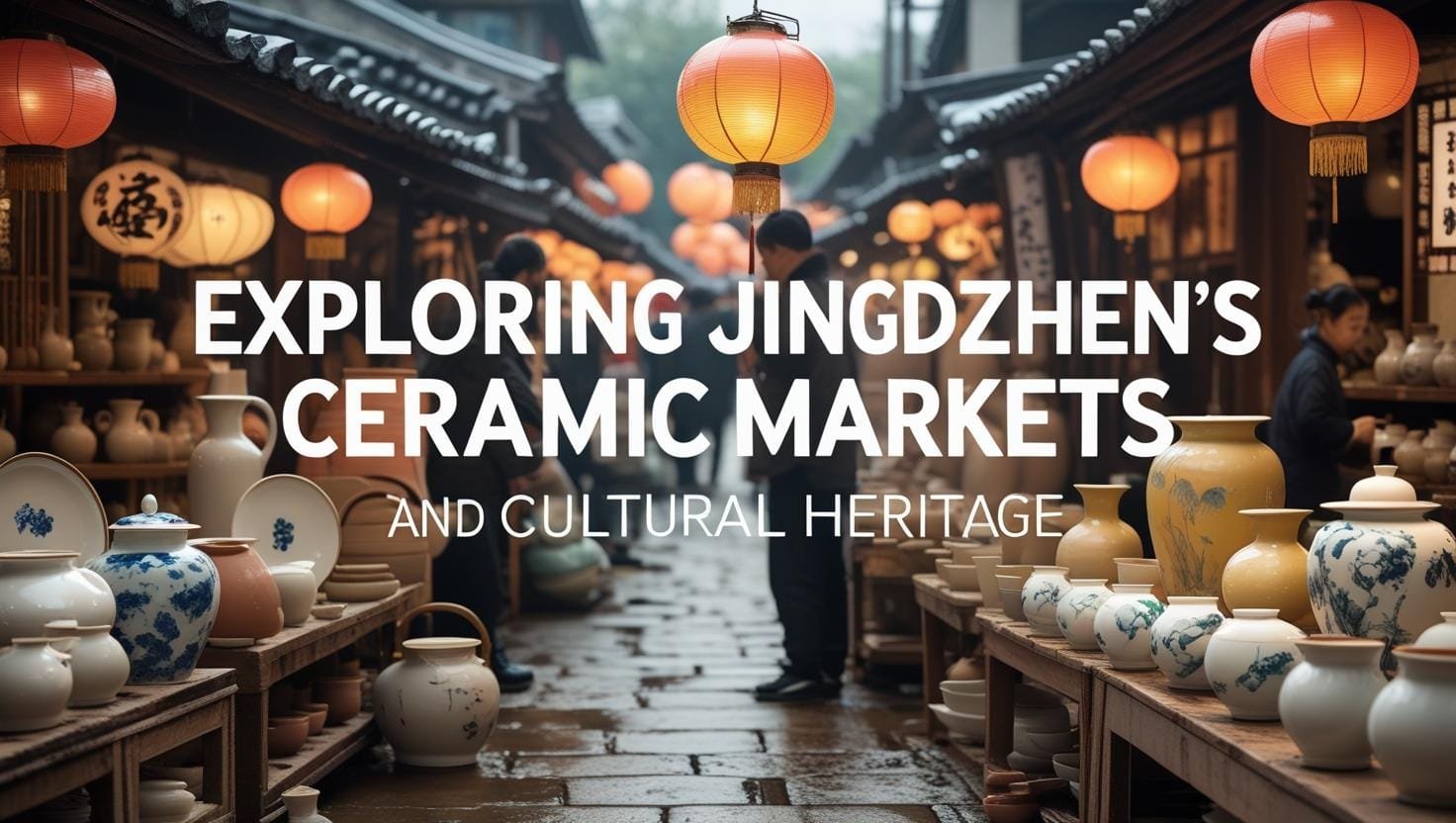Exploring Jingdezhen’s Ceramic Markets and Cultural Heritage

Welcome to Jusha Travel, where we dive into the heart of China’s rich cultural tapestry to inspire your next adventure! If you’re a traveler drawn to the artistry of ancient traditions or a culture enthusiast eager to explore Jingdezhen cultural landmarks, then Jingdezhen in Jiangxi Province is a must-visit. Known as the “Porcelain Capital of the World,” this city has been crafting exquisite ceramics for over a thousand years, blending history, innovation, and everyday life https://jusha.travel/historical-places-in-china/. In this post, we’ll uncover the vibrant Jingdezhen Ceramic Markets, delve into China ceramic culture, and highlight cultural attractions in Jingdezhen that make it perfect for Jingdezhen travel guide seekers and those on China cultural tours. Join us as we explore why Jingdezhen isn’t just about pottery—it’s a living story of creativity and heritage that will leave you inspired.
The History and Legacy of Jingdezhen: The World’s Porcelain Capital

Jingdezhenhttps://jusha.travel/top-10-must-visit-cities-in-china-for-2025-adventures/’s story begins over a millennium ago, earning it the title of the world’s porcelain capital. This city in Jiangxi Province has long been synonymous with China ceramic culture, thanks to its unique geographical advantages and imperial history. Surrounded by deposits of kaolin and petuntse, essential raw materials for porcelain, Jingdezhen flourished during the Northern Song Dynasty. The name itself hails from Emperor Jingde’s reign in the early 11th century, marking the start of its rise as a hub for fine ceramics.
As you wander through Jingdezhen cultural landmarks like the ancient kilns and imperial sites, you’ll feel the weight of history. For centuries, these kilns supplied the Chinese Imperial Court and even exported wares to Japan, Southeast Asia, and Europe, influencing global art and design. Fun fact: During the Ming and Qing dynasties, Jingdezhen produced porcelain for state ceremonies, including the famous blue-and-white designs that became icons of China ceramic culture. If you’re planning a Jingdezhen travel guide experience, consider visiting the Imperial Kiln Museum (linked here for more details), where you can see artifacts that showcase the city’s innovative techniques, like underglaze painting https://jusha.travel/exploring-chinese-festivals-culture/.
For travelers, this section of your China cultural tours offers practical tips: Book a guided tour to learn about the environmental factors that made Jingdezhen thrive, such as its rivers for transportation and pine forests for kiln fuel https://jusha.travel/what-is-chinese-tea-culture-and-how-to-experience-it/. And if you’re curious about modern parallels, think of how ancient craftsmanship mirrors today’s tech-driven innovations in China—much like how 3D printing is revolutionizing design, Jingdezhen’s artisans once adapted to new tools and trade routes. Here at Jusha Travel, we love sharing these connections to make your China journey unforgettable!
Diving into Jingdezhen’s Ceramic Markets: A Shopper’s Paradise
.png)
No visit to Jingdezhen is complete without exploring its legendary Jingdezhen Ceramic Markets, where history and commerce collide in the most colorful way https://jusha.travel/why-xians-terracotta-warriors-are-worth-the-hype/. These markets are the heartbeat of the city, offering everything from antique treasures to contemporary pieces that embody China ceramic culture. Start at Tao Yi Street, the premier spot for high-end ceramics, where skilled artisans display their finest works in bustling shops and studios.
Another gem is the Tao Xi Chuan Market, a revitalized industrial area that’s a fusion of tradition and modernity (learn more here). It’s perfect for spotting innovative designs by young creators, including the “Jing Drifters”—artists from across China who flock here for inspiration. Don’t miss the Ming Qing Yuan Market for antique porcelain that echoes the dynasties of old, or the quirky Ghost Market, an early-morning affair where bargains abound and unexpected finds await.
As a traveler, practical tips are key: Visit early to beat the crowds https://jusha.travel/exploring-chinese-festivals-a-guide-to-vibrant-cultural-celebrations-in-china/, haggle politely (
it’s a cultural norm!), and consider joining a hands-on workshop to try your hand at pottery. These cultural attractions in Jingdezhen not only showcase the diversity of ceramics—from traditional blue-and-white to experimental forms—but also provide insights into local life. For instance, ceramics here often incorporate elements of Chinese food culture, like teapots shaped for optimal tea brewing, reflecting the country’s tea-drinking heritage. If you’re on a Jingdezhen travel guide itinerary, pair your market visit with a local meal; try Jingdezhen’s famous ceramic-fired dishes for a taste of how technology and tradition intersect in daily life.
The Modern Creative Scene: Innovations and “Jing Drifters”

Jingdezhen isn’t stuck in the past—it’s a thriving hub of creativity, attracting thousands of “Jing Drifters,” young artists and entrepreneurs reshaping China ceramic culture. These creative nomads, drawn from across the country, have turned places like the Letian Creative Industry Center and Taoxichuan into vibrant spaces for innovation. At Sanbao Pottery Village, you’ll find international collaborations that blend traditional techniques with modern twists https://jusha.travel/whats-new-in-chinas-tech-scene-innovations-to-see-in-2025/, such as digital glazing methods that echo China’s tech advancements.
This modern evolution highlights , https://jusha.travel/top-5-futuristic-cities-in-china-shaping-tomorrows-world/Jingdezhen cultural landmarks like these hubs, where artisans experiment with sustainable practices and cross-cultural exchanges https://jusha.travel/exploring-chinese-festivals-a-guide-to-vibrant-cultural-celebrations-in-china/. Interesting fact: Over 30,000 people have moved here in recent years, fostering a community that balances handcrafted traditions with tech-savvy designs, much like how China’s high-speed rail connects ancient sites to modern cities. For China cultural tours, this means opportunities to participate in workshops or even design your own piece, offering a hands-on way to engage with the culture.
Travel tips for enthusiasts: Stay in a guesthouse near these areas to immerse yourself fully—many offer affordable rates and access to events https://jusha.travel/best-hostels-for-backpackers-in-china/. If you’re into technology, note how apps and online platforms are helping artisans sell globally, paralleling China’s digital economy boom. This blend of old and new makes Jingdezhen a fantastic stop on your Jingdezhen travel guide, providing memorable insights into how culture adapts in a fast-changing world.
Cultural Attractions and Practical Travel Tips for Jingdezhen
While the markets steal the spotlight, Jingdezhen’s cultural attractions extend to museums, temples, and festivals that deepen your appreciation of China ceramic culture. The Jingdezhen Ceramic History Museum (detailed here) showcases innovations like Shufu porcelain from the Yuan Dynasty, offering a window into imperial life. Festivals, such as the annual Porcelain Fair, let you experience live demonstrations and taste local specialties, like ceramic-baked river fish—a nod to Jiangxi’s culinary scene.
For practical advice on Jingdezhen travel guide essentials, plan your trip during milder seasons (spring or autumn) to avoid crowds and heat. Use ride-sharing apps for easy navigation, and don’t forget to pack comfortable walking shoes for exploring markets and sites https://jusha.travel/navigating-chinas-subway-systems-like-a-pro/. As with many China cultural tours, respect local customs by learning basic phrases and being mindful of bargaining etiquette. And for a tech twist, download translation apps to chat with artisans—it’s a fun way to bridge language gaps, much like how social media connects global travelers.
Quick Tips for Your Visit:
- Budget travel: Markets offer affordable souvenirs, but invest in a workshop for a deeper experience.
- Sustainable choices: Support eco-friendly artisans to align with China’s growing green initiatives.
- Food pairing: Try pairing your ceramic finds with local teas for an authentic cultural immersion.
Inhttps://jusha.travel/what-makes-tibets-spiritual-sites-a-travelers-paradise/ conclusion, exploring Jingdezhen’s Jingdezhen Ceramic Markets and cultural heritage offers an unforgettable journey into the soul of China ceramic culture. From ancient kilns to modern studios, this city captures the essence of Jingdezhen cultural landmarks and provides endless inspiration for travelers. Whether you’re seeking cultural attractions in Jingdezhen or following a comprehensive Jingdezhen travel guide, it’s a highlight of any China cultural tours. At Jusha Travel, we’re passionate about guiding you through these experiences to create lasting memories.
We’d love to hear about your own adventures in Jingdezhen—share your stories in the comments below! For more tips on China travel, culture, and beyond, visit jusha.travel and explore our related articles. Safe travels!

